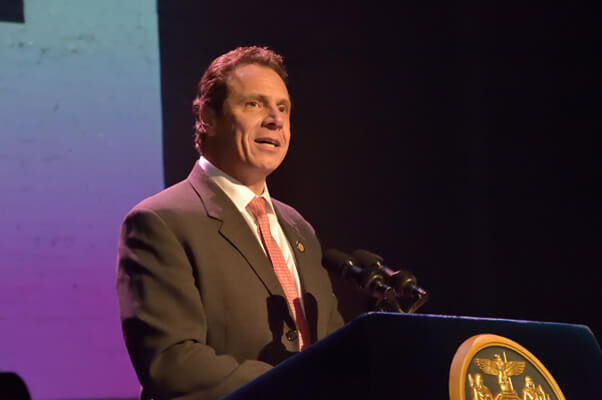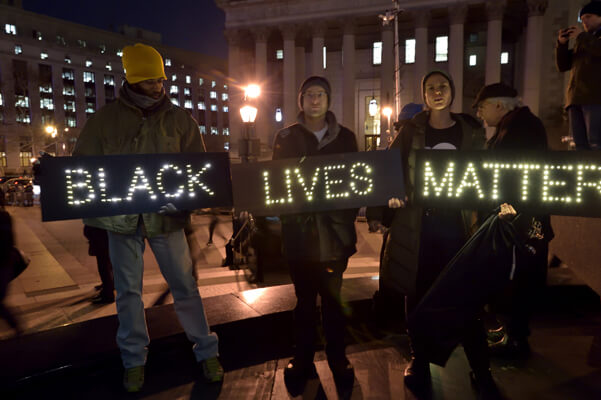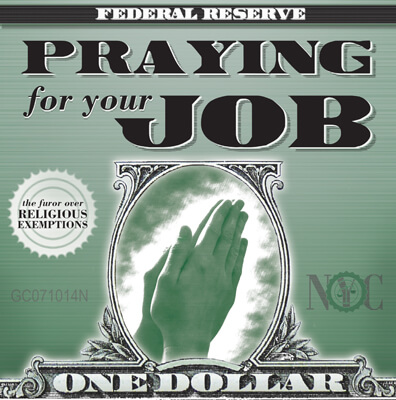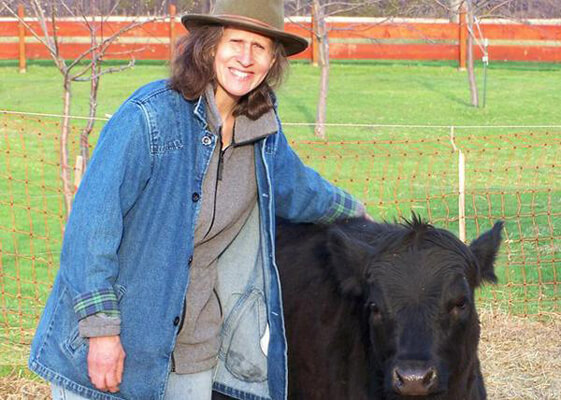As many as 200,000 jammed Central Park West, including Columbus Circle outside the Trump International Hotel & Tower, for the second annual Women’s March on New York City. | CHRISTIAN MILES
The second annual Women’s March on New York City, held January 20, brought an estimated 200,000 people onto Central Park West from West 61st Street to West 80th Street and beyond.
“I love the fact that I cannot see the end of this,” said Whoopi Goldberg, speaking from the platform stage at West 61st Street. The reaction to Donald Trump’s election that in January 2017 drew millions onto the streets of 280 Women’s Marches worldwide has now become action, with a movement well underway. The 2018 Women’s March was a call to vote, to run for office, to speak out, and to never be silenced.
“The core principles have remained the same,” said Sarah Steinhardt, spokesperson for Women’s March Alliance (WMA), organizer of the New York event. “We march for women’s rights and gender equality, to empower women to use their voices, and to give them the tools and the knowledge and the information to do so.”
On anniversary of Trump’s inauguration, a swelling call to continued action
Voter registration was key among the aims.
“Our goal is to register one million women to vote by the November election,” Steinhardt explained, “We feel very strongly that women should know how to exercise their rights and the most basic example of that is voting.”
The second annual Women’s March on Washington demonstrated the commitment of hundreds of thousands to continue the resistance to the Trump administration. | CHRISTIAN MILES
While the marchers would hear the call to vote from speakers who rallied the assembled thousands on a good-for-marching, 50-degree Saturday, they would mostly be moved by the stories of those who were not household names. There were familiar faces who inspired — in addition to Goldberg, Rosie Perez, Yoko Ono, and New York State Attorney General Eric Schneiderman — but the day belonged to women committing themselves to change the culture behind the headlines.
From the stage, newly-elected Atlantic County, New Jersey, Freeholder Ashley Bennett, a psychiatric emergency screener attending grad school, shared how she’d seen incumbent Freeholder John Carman post a meme during last year’s Women’s March that read: “Will the women’s protest end in time for them to cook dinner?” Bennett was offended and decided to run for Carman’s seat.
“When I announced my candidacy many people wrote me off because I’m just an ordinary woman,” Bennett recalled. “I wake up early, I go to work every day, I have student loans, and I have to check my bank account before I do just about anything — but I had to remind myself that when ordinary people stand up for what they believe, when they come together around a common purpose and a true desire to lift up everyone in the community, extraordinary things happen.”
Sulma Arzu-Brown introduced herself as a Garifuna woman from Honduras, but she wears multiple hats as director of operations for the New York City Hispanic Chamber of Commerce, co-owner of Boogie Down Grind Café in the Bronx, and author of the children’s book “Bad Hair Does Not Exist!”
Honduran immigrant Sulma Arzu-Brown was among the day’s speakers. | CHRISTIAN MILES
On the stage with her mother and two young daughters, Arzu-Brown spoke emotionally of the sacrifice her mother made by leaving her and her brother behind in Honduras to come to the US. “I stand on the shoulders of my mother,” she said. “We are creating a path for our children that lets them know that we are not just people of color, that we are people of beautiful color, that we belong to the human race and we come from beautiful places that we cultivated with our bare hands.”
Although the #MeToo movement was not mentioned by name, the ability to speak out about the pain of sexual harassment and abuse presented itself. From her wheelchair, Nadina LaSpina, an activist for people with disabilities, told the marchers that the disabled are not spared from sexual assault by medical professionals.
“I was made to feel that I should be grateful because I was not as good as a non-disabled woman,” she said, the injustice clear in her voice. She also pointed out that in the struggle for equal pay, disabled individuals earn 37 percent less overall than the able-bodied.
A hush fell over the crowd when the singer Halsey approached the microphone to share her poem, “A Story Like Mine,” her memories of being sexually assaulted as a child, sitting with her best friend in a Planned Parenthood waiting room after her friend had been raped, being forced to have sex with a “boyfriend,” performing onstage after a miscarriage, and realizing that her celebrity is not a protection from sexual abuse.
The unresolved issue of the DACA Dreamers was emphasized during the march, as in this poster by artist Mary Frank. | CHRISTIAN MILES
The spoken words touched the generations, from three-year-old Adelaide Carter of Brooklyn, participating in her second Women’s March, this time walking with no need of her stroller, to 89-year-old Upper West Sider Mary Van- schaick, in a Women’s March for the first time with the help of her wheelchair. With Yoko Ono looking on, the singer MILCK performed “Quiet,” a song with the refrain, “Let it out, Let it out now.”
Barricades removed, women, men, and children, united, surged forward through the streets. An electric energy spread from person to person, especially when the marchers passed Trump International Hotel & Tower at Columbus Circle and then the Trump Parc on Central Park South, shouting chants: “Not a creepy tweeter, we want a leader,” “Love, not hate, that’s what makes America great,” and the repurposed, “Lock him up!”
Many of the signs, such as artist Mary Frank’s poster painting “Don’t Tear Families Apart,” showed concern for the current crackdown on immigration and support of the DACA Dreamers.
The banner “Marching For Everything We Hold Dear” was held at one corner by Lynn McMahill from Washington Heights who said, “I don’t know all the people holding the banner with me. People just joined in to help and, really, that’s what this is all about, people joining together.”
LGBTQ partners and friends, mothers marching with daughters, aunts with nieces, sisters marching with sisters and brothers, wives with husbands, the march had a feeling of family. Chandra Turner, who lives in Westchester, brought her 11-year-old daughter Madeline, “because I wanted her to be here and witness this and not feel alone. I wanted her to see that she is not the only one who feels the way she does, that there are other people who are standing up for equality. She is worried about children being deported who were brought here. Her father is not an American citizen. It’s scary to think about what can happen with this administration.”
The day was peaceful, with the NYPD only a subtle presence, the sky devoid of buzzing helicopters, the focus being on the power of one’s voice multiplied by thousands.






































